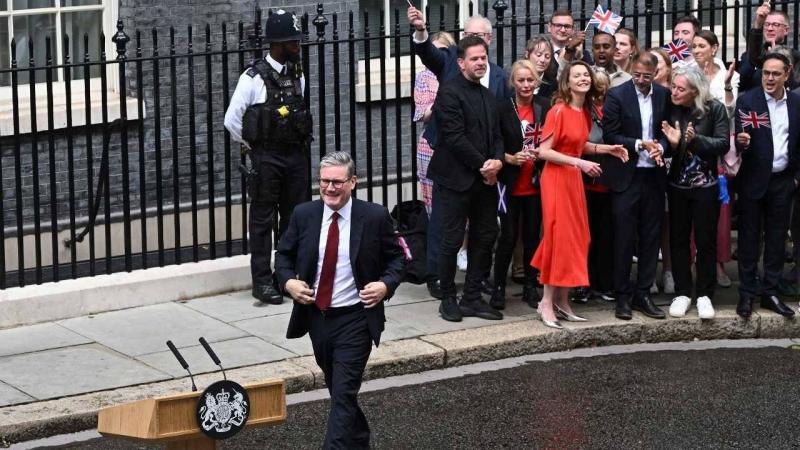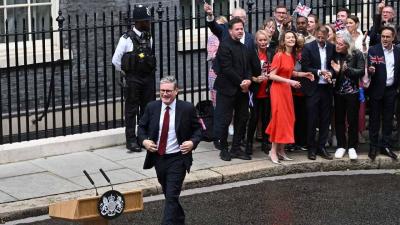After the confirmation of his party's victory about a week ago, Sir Keir Starmer stated: "The country first... the party second." To be honest, this phrase carries significant importance, and it will be documented so he can be questioned later about his commitment to it. The leader of the party, returning to power after fourteen years spent by Labour MPs in opposition, repeated the same phrase on the following Saturday during his first press conference as the Prime Minister under King Charles III, but he added that "the country first and the party second is not a slogan; it is our method of operation." When Starmer first uttered this phrase, I was struck by his direct appeal to the general electorate, specifically addressing "those who did not vote for us" - by the way, I am one of them - intending to reassure them that the priorities of his government's work program concern all Britons. By the time of the first official workday morning of Starmer's government, Rachel Reeves, the finance minister and the first woman to hold this important position in Britain, announced one aspect of implementing that approach through the launch of an ambitious housing project.
During the saga of the 2024 British elections, several aspects leaked from the inner councils to the general public, even before the battles began after Rishi Sunak surprised everyone on May 23 by calling for them. One of those aspects concerns Sunak himself. He is the first Briton of non-British descent to become the leader of the Conservative Party and thus Prime Minister. This formed a kind of fascination and was welcomed by most segments of society, except for those who reject the idea that the party is no longer just for the wealthy or exclusively for those with "blue blood." These dissenters are not limited to retired politicians but also include young men and women eager to stir up racist sentiments whenever they feel they are fading. Sunak was one of those who faced resentment specifically from that group, and it is likely that it will later become clear that his surprise announcement of early elections, which he well knew were not favorable for his party, was a kind of unannounced revenge directed against the entrenched racist current within Conservative ranks.
For their part, the Labour Party seized the opportunity that their opponents, the Conservatives, were caught off guard by a battle they thought was postponed until next fall, leading their leader Starmer to launch their electoral program under the slogan of the need for "change." The general electorate did not need anyone to incite them to change; this became evident from Boris Johnson's missteps and the chaos of his rule. Yes, the Starmer government will introduce several significant changes. This is expected. However, this will not prevent Starmer himself from discovering at some point that he, as a politician, must change. In politics, there is no adherence to a specific principle; that is a form of stagnation. I will conclude with a question that is not new; does Starmer's statement "the country first, the party second" mean anything to the wooden figures who have become accustomed to sitting on the leadership chairs of most Arab parties and movements? I don’t think so, and not all suspicions are sins.




